🎧 Five Career Questions: How can I follow my values in my work?
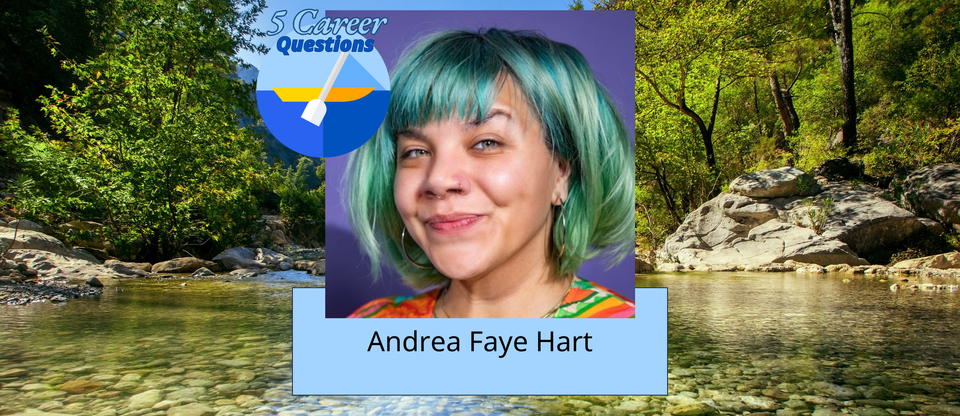
Andrea Faye Hart quite literally took a leap of faith when she left her journalism job to become a chaplain.
The moment that called Hart to divinity school came at a newsroom outreach event. A Mississippi high school was finally integrating, and she was there to help reporters facilitate conversations among the families. As she was working the registration desk for the first event, a mom came to drop off her kid. When Hart asked if she'd like to come in, the woman responded that she didn't want to be involved, saying something along the lines of the media is mean.
"She didn't end up participating, but we talked for a little bit," Hart said. "There was something about the way our discussion went, it didn't get heated or anything, I had genuine curiosity. I was just thinking, 'Oh, I think there's a spiritual thing happening.'"
Hart followed that curiosity to divinity school and then a chaplaincy and resource organizing at reproductive justice organization. As we discussed her journey, I was struck by how values were consistently pointing her toward her next move, from wanting to provide financial stability for her family, to how she views herself as a leader, to bringing practices from journalism to her chaplaincy.
Read the writeup of our conversation below, or dive deeper with the audio version.
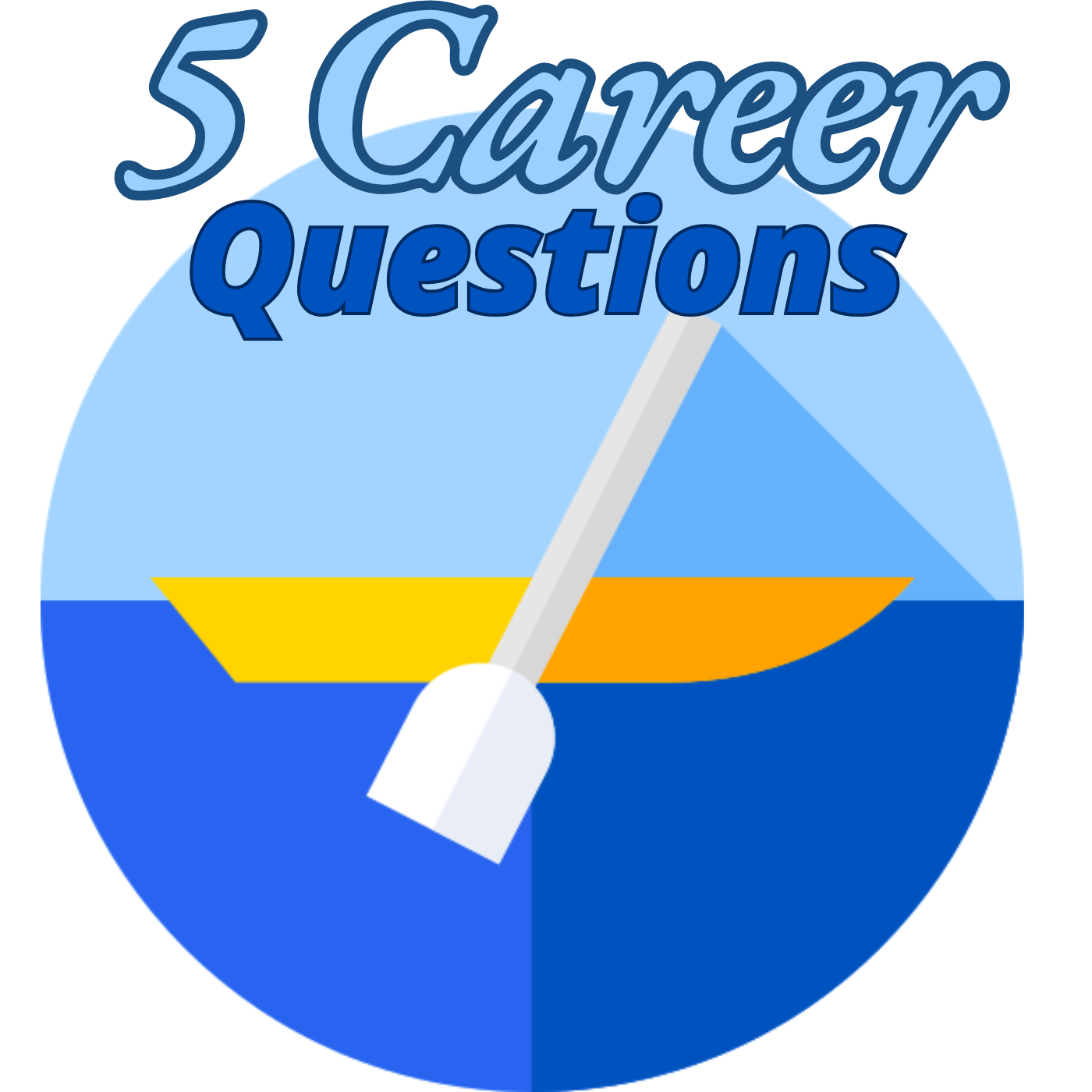
How did your goal of supporting your family shape your decisions about your work, and what changed over time?
Hart was primarily raised by her working poor single mom. When she was 12, Hart won a local essay competition on why her mom was the greatest in the world. They got to take a Mother's Day trip with a limo ride to a fancy brunch, and it got Hart thinking, "I really love writing. How do you make money with writing?"
She chose to pursue journalism to match her love of writing with her desire to be a financial support for her family – entering the field as it was roiled by mass layoffs.
"It's funny now to think about. I did this to be a safety net for a family with a lot of financial instability and now I'm graduating into financial instability," she said.
So, she was forced to get creative, moving from journalism jobs to media-based organizing.
"I've always been resourceful. It's just how I grew up," Hart said. "Instead of leaving journalism altogether, I just really figured out, where can I do the work that means the most and still make ends meet?"
It set her on a nonprofit track, eventually bringing her to co-found Chicago-based City Bureau, a civic journalism lab.
As one of the four co-founders of City Bureau, you ran into that tension that comes with being a practitioner in leadership. What did that experience show you about the type of work you felt drawn to do?
That experience clarified how Hart sees herself as a leader. She's not interested in being the face of an organization, but acting as a steward and leading from the middle.
"It's a mix of a lot of care response, and managing people and organizing resources and assets so that the whole chorus can sing and feel cared for," Hart said.
From her perspective, City Bureau was being asked to grow at a scale that didn't match with her values and steward leadership approach. It made her think about the importance of intentionality, "and how so many decisions can push-pull you into something that you're like, ‘Wait a minute, I didn't want this.’
"Ultimately, for me, it was on a spiritual level. I felt like this is not aligned with where I want to be. I feel grateful for the experience and grateful for what we accomplished, but there was something rumbling within me about that."
When you decided to go to divinity school, what were you thinking about?
Hart was making the most money anyone in her family had ever made, but those rumblings were pointing her toward something new.
"On paper I should have been super happy, but I was deeply miserable. And I think there were things that were joyful, but on the whole, I was like, 'Man, what is going on?'"
That moment with the mom in Mississippi was her call to divinity school. Hart said she understood faith in terms of service, community connection and teaching. Growing up Catholic, her family would get turkeys on Thanksgiving and use the food pantry at church, where her grandfather recalled organizing voting drives.
"I just was really interested in understanding, especially in the South had such an example of how do you radically organize spiritually and have material impact. And so I felt this call to chaplaincy," she said. "It was completely a leap of faith. Absolutely, in every sense."
What did you learn then at divinity school that you've applied to your work?
Hart's experience at divinity school deeply affirmed the practices that drew her to journalism, and that she continues baking into her work. When people come into contact with chaplains, it's usually in the hospital when someone is dying, or in prisons.
"The role of chaplain really affirmed to me the power of witnessing and listening, which is something that I think journalists are supposed to do too," she said. "And then honestly the power and violence of misinformation was very much something that I learned at divinity school."
She had just started an internship for patients seeking gender-affirming care when conservative pundit Matt Walsh targeted that very program. She found facilitating and mediating in a stressful environment was also spiritual work.
"I had a really great advisor who said, ‘It sounds like you're moving from a space of doing to being,’ and I was just floored by that. I think I needed to release an identity that was so attached to my job and my career and ask, what is my life's work? And how do I orient my life in a way that supports that and nourishes it and nourishes me as a being? And then also make sure I pay my bills."
What advice would you give someone else who is thinking about adjusting their expectations for what their work could be?
"For me, the thing that has always been most helpful is cultivating a deep level of self-awareness, being honest and humble about who I am. Because it's helped me know when something felt really risky or when it was just worth it to take the risk and try. It's a both-and: I'm both very aware of where I have work to do, and then I'm very aware of the things that feel so important to me, and those become so essential in terms of parts of a compass to navigate.
"(Also), you can have a life outside of your work and it's very important to cultivate those other parts of you. And they are all connected, right? It's not separate boxes, but it is the metaphor of the river with all of the little streams that come out of it.
"(Lastly,) decisions can feel like forever, but they probably aren't. And some decisions feel huge, but they're actually just the step to get you to somewhere else. The decision to uproot to go to Nashville and be in divinity school was huge, but it was just a tiny thing in the bigger picture to get me to where I am now.
You can have big feelings about something that's actually a smaller step than you realize. (That understanding can help) people overcome whatever might be holding them back from taking that step.
Happy navigating,
Bridget
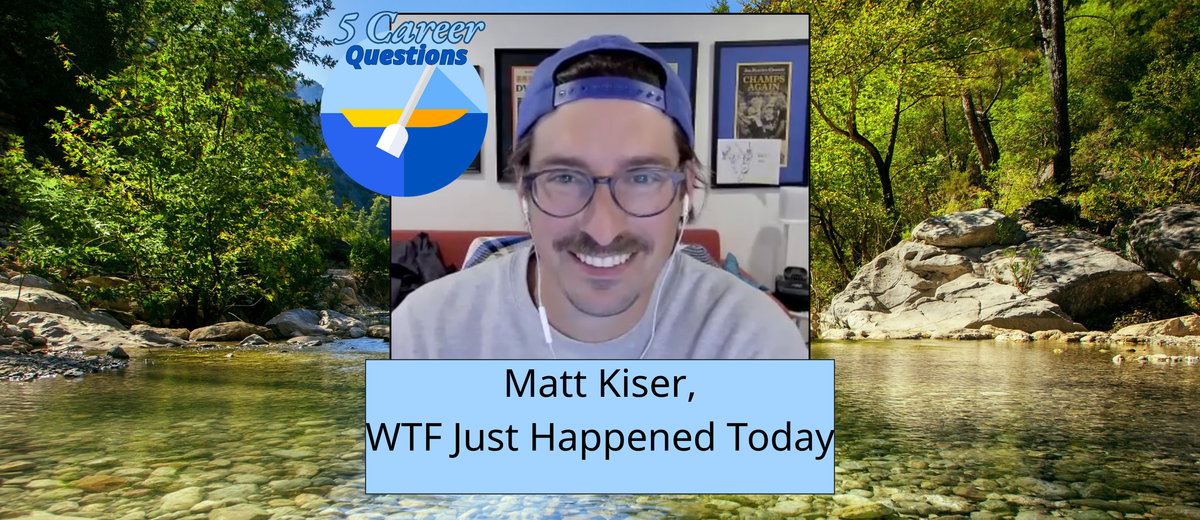
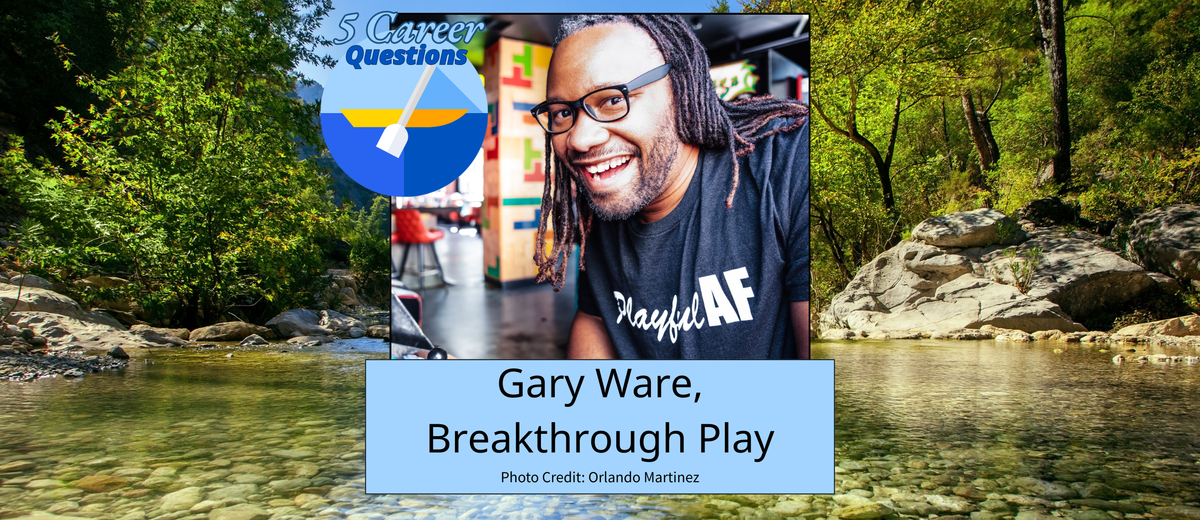
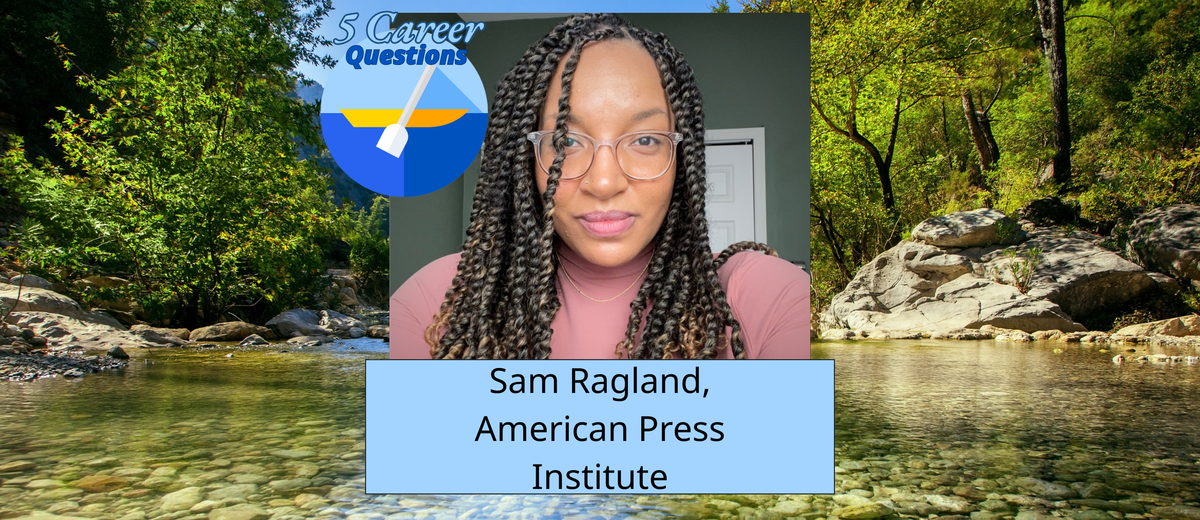
🛶 Career River Connection 🛶
Support to make your next career move
In this edition, supporting subscribers get to hear my responses to Andrea's questions about living your values, caregiving, and "total baloney" career advice. Navigators also receive an invitation to an upcoming "Map Your River" webinar and Q&A I'm hosting. Upgrade anytime for these and other resources to support your career journey!


